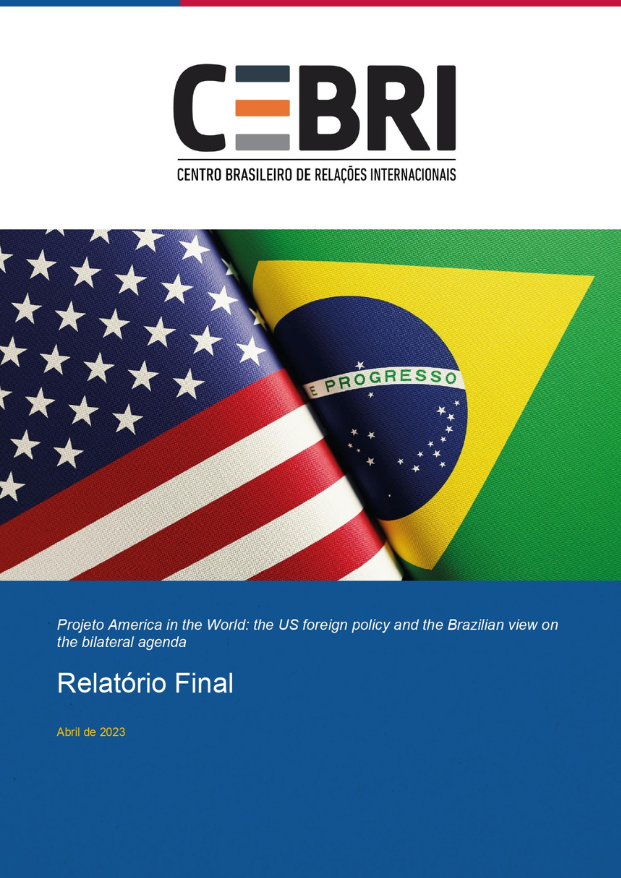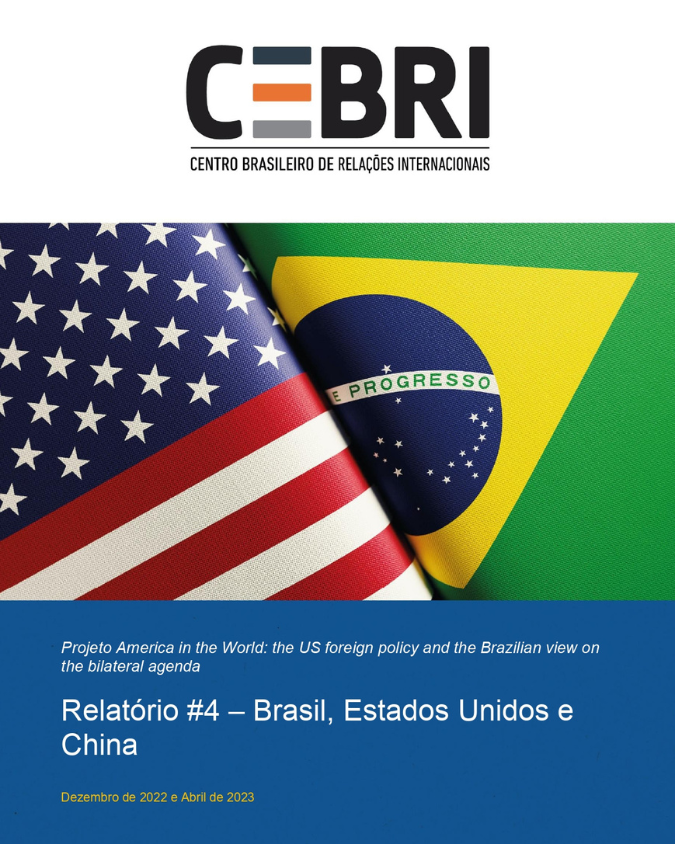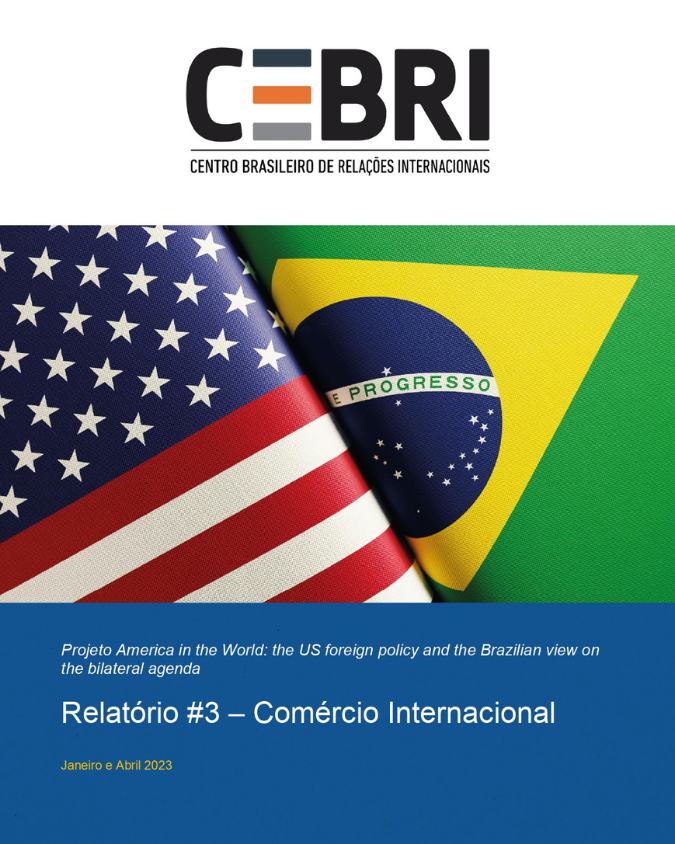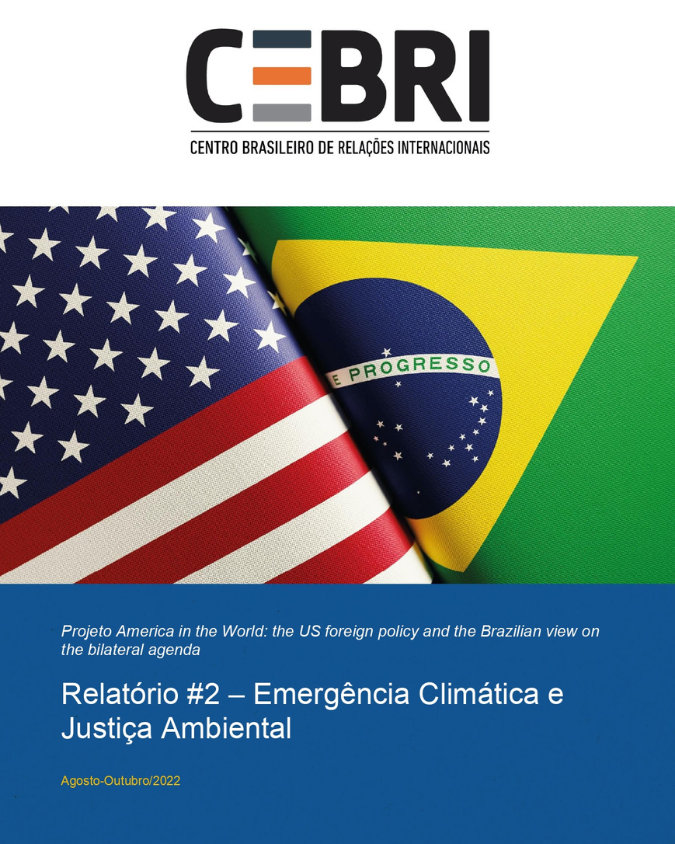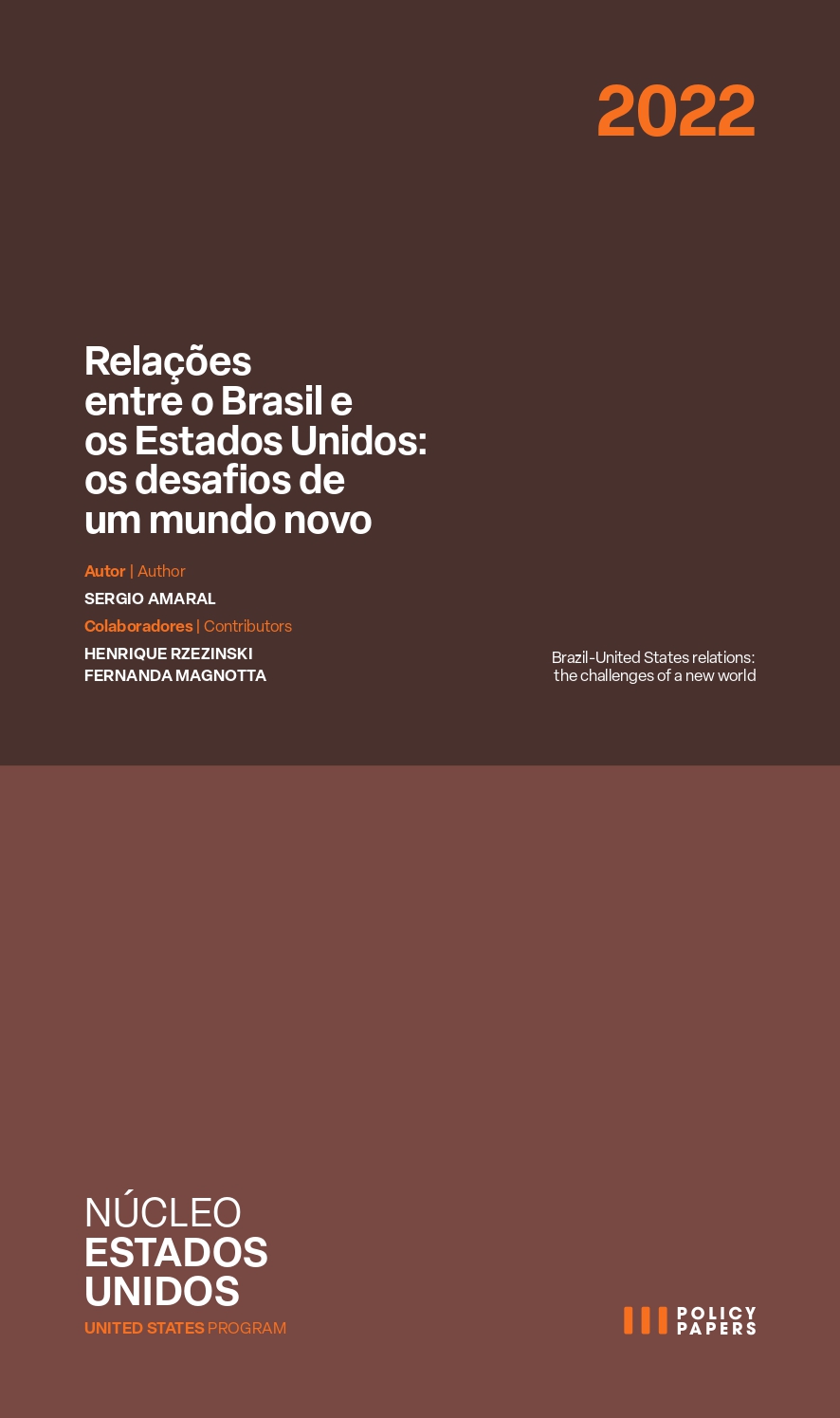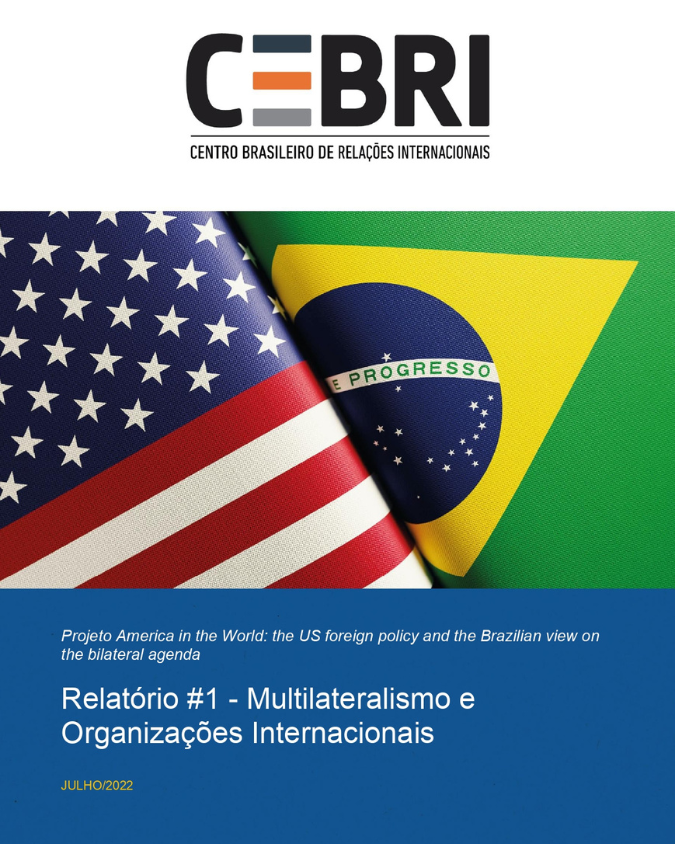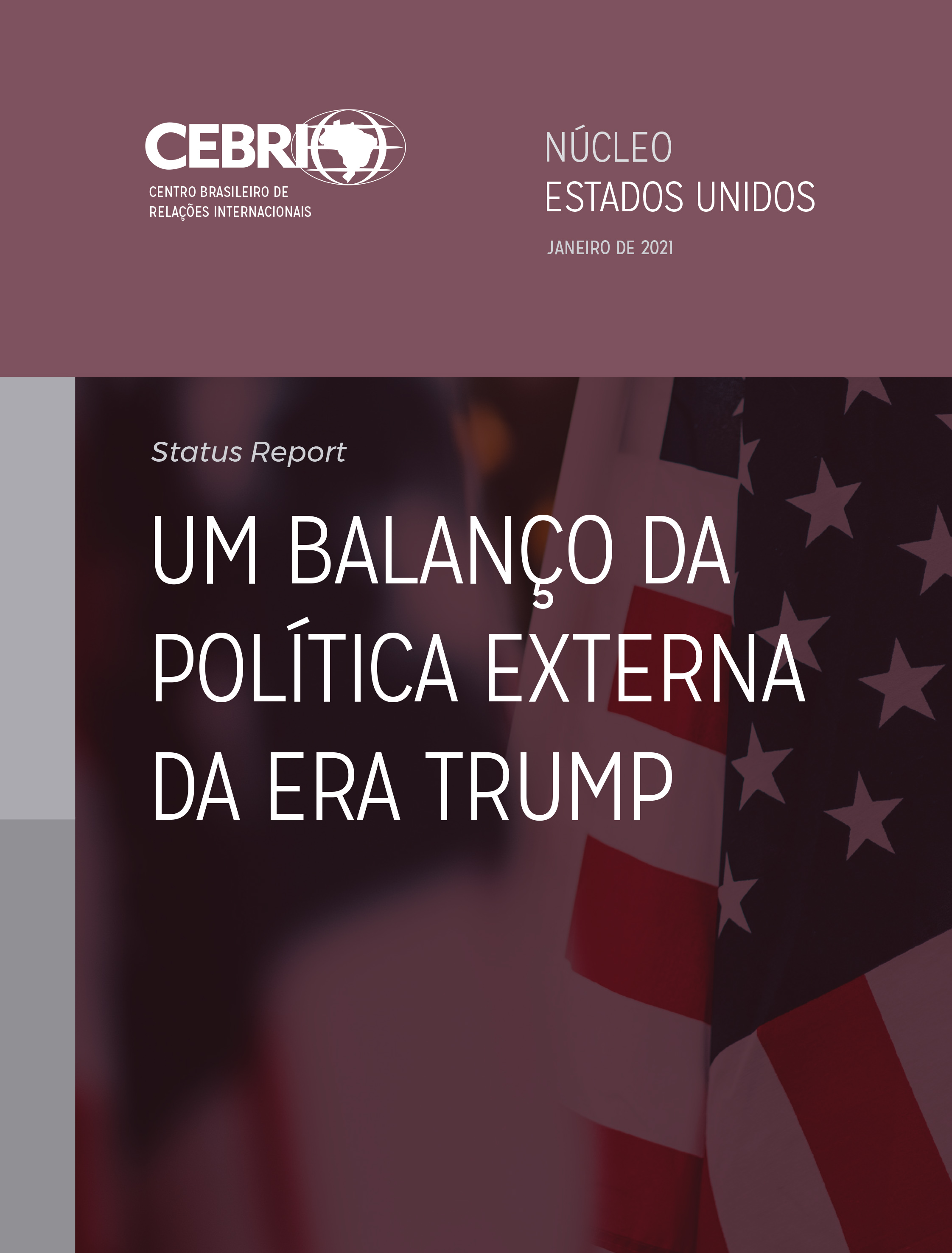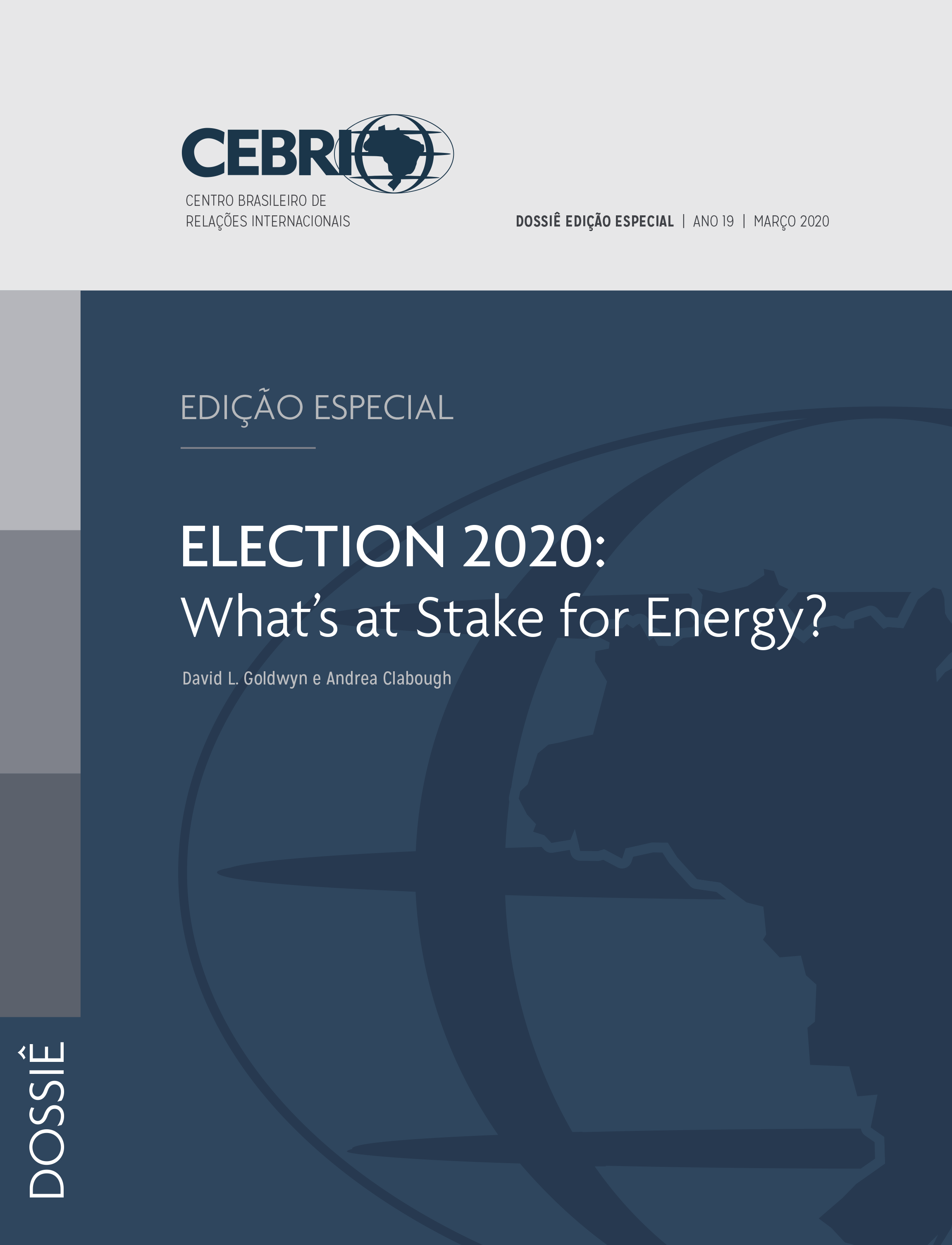The publication, prepared by the Brazilian Center for International Relations (CEBRI) in partnership with the Konrad Adenauer Foundation in Brazil, analyzes the Multilateral Trading System and the impacts of US government tariffs, specifically on Brazil.
The study reviews the history of the Multilateral Trading System and reassesses the composition of Brazilian trade with the US, China, and the European Union, considering the importance of these major partners not only for their impact on the trade balance, but above all for the composition of this trade in terms of productive sectors of the national economy.
The policy paper seeks to contribute to Brazilian trade expansion with two policy suggestions: maintaining the trade status quo and an autonomous and gradual Brazilian trade liberalization plan.

Share
The publication, prepared by the Brazilian Center for International Relations (CEBRI) in partnership with the Konrad Adenauer Foundation in Brazil, analyzes the Multilateral Trading System and the impacts of US government tariffs, specifically on Brazil.
The study reviews the history of the Multilateral Trading System and reassesses the composition of Brazilian trade with the US, China, and the European Union, considering the importance of these major partners not only for their impact on the trade balance, but above all for the composition of this trade in terms of productive sectors of the national economy.
The policy paper seeks to contribute to Brazilian trade expansion with two policy suggestions: maintaining the trade status quo and an autonomous and gradual Brazilian trade liberalization plan.

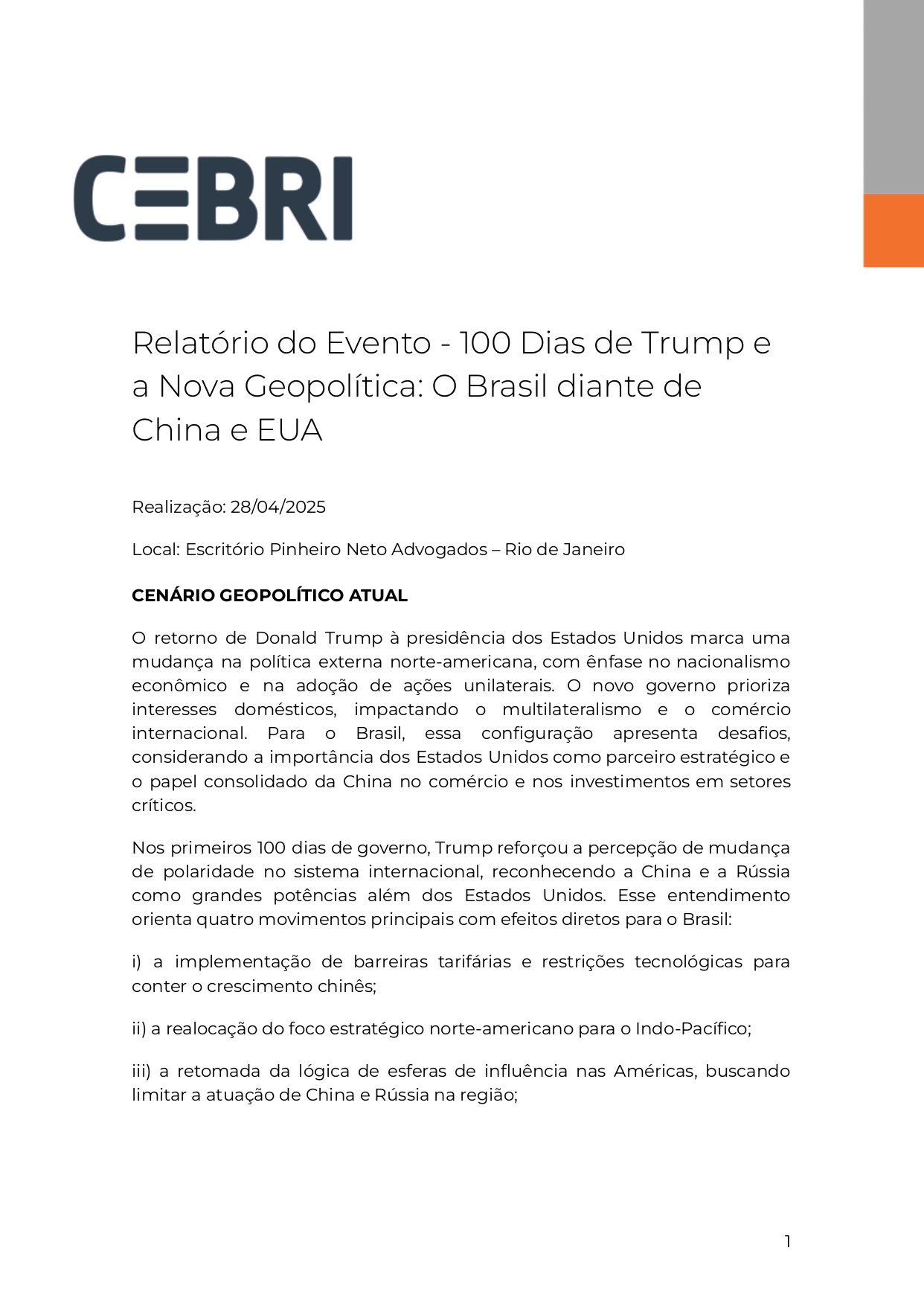
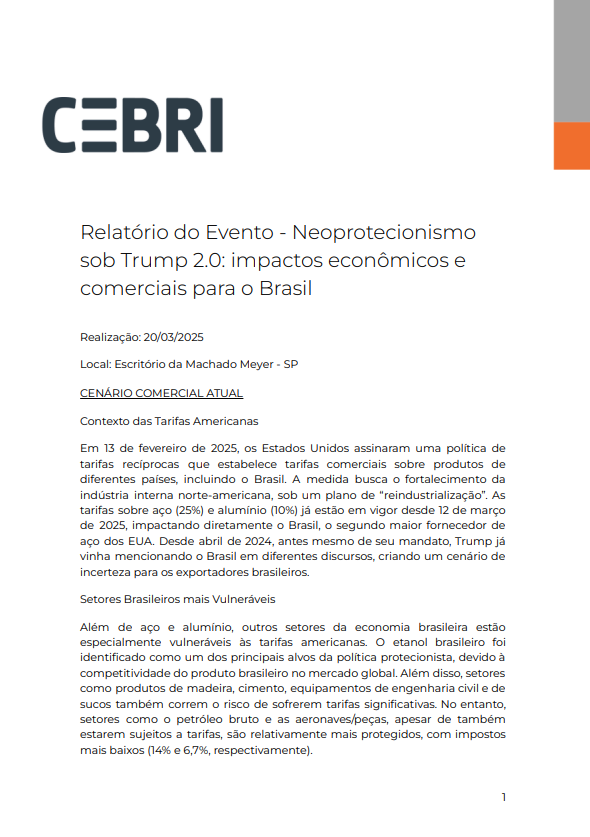
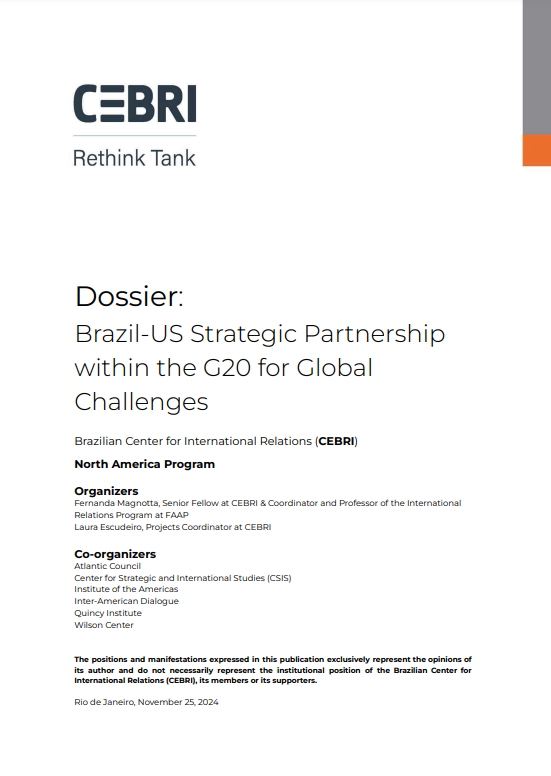
649f1ee6dbdcf.jpg)
